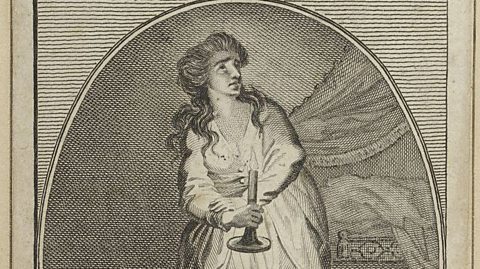To mark LGBT+ History Month, ±«Óătv Bitesize has taken a dive into theatre history to uncover LGBT+ plays and musicals that left their mark.
Although there are several characters in older works who can be interpreted as being part of the LGBT+ community and performed as such, it was not until the 20th Century that explicitly gay characters began to appear onstage.
While this list is by no means exhaustive, it highlights some works which broke the mould, tackled topical issues and made history.
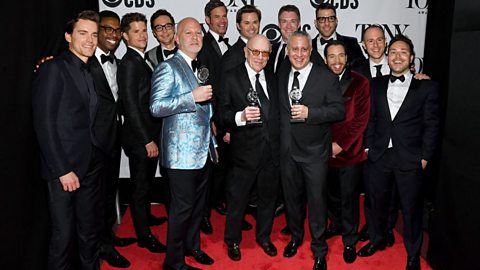
4 famous LGBT+ play and musicals
1. Breaking ground in New York
Premiering Off-Broadway in 1968, The Boys in the Band was arguably one of the earliest plays to focus on a cast of homosexual characters. It takes place in New York, where a group of gay men have gathered at an apartment for a birthday party. As the night progresses and they get increasingly drunk, their unhappiness becomes more apparent and their interactions bitter.
Initially only supposed to run for five performances, the play proved to be an overnight success, and was moved to a larger venue where it then ran for over 1,000 performances, as well as transferring to London.
Stars such as Marlene Dietrich, Groucho Marx and former First Lady Jackie Kennedy flocked to see it. Two movie adaptations have since been made and it was revived on Broadway for its 50th anniversary in 2018, starring Jim Parsons, Zachary Quinto and Andrew Rannells among others.
The title of the play is taken from a line in the film A Star Is Born: “You're singing for yourself and the boys in the band.”
2. Exploring the impact of AIDS and HIV
In the decades following the premiere of The Boys in the Band, the LGBT+ community was hit hard by the effects of HIV/AIDS. During this time, numerous plays and musicals were written that tackled this subject, highlighting the devastating impact of the disease and society’s response, including the fear and misunderstanding.
Angels in America is a mammoth two-part play (Millennium Approaches and Perestroika) which runs for a staggering seven and a half hours. Written by playwright Tony Kushner and premiering in 1991/1992, it is set in 1980s Manhattan and follows the story of several gay men whose stories intersect. Known for its complexity and symbolism, the play features several supernatural characters, including ghosts and angels. Daniel Craig and Jason Issacs were both in the original London cast at the National Theatre.
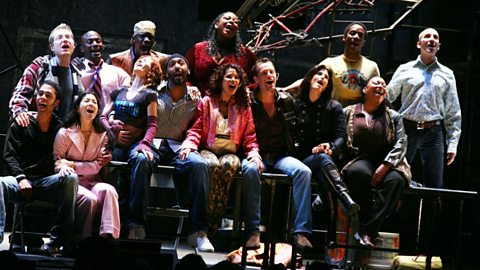
Several years later in 1996, the highly influential rock-pop musical Rent premiered Off-Broadway. Adapted from Puccini’s opera La Bohème and set in New York’s East Village in 1989, it follows the lives of eight friends as they struggle to make a living and build a community. Half of the characters are LGBTQ+ and several are living with HIV/AIDS.
Sadly, the writer Jonathan Larson died the evening before the show’s premiere at the New York Theatre Workshop, and so did not see the incredible success it had: running for 12 years on Broadway. He was posthumously awarded the Pulitzer Prize for Drama as well as three Tony awards, including Best Musical.
The song Seasons of Love is probably the show’s most well-known tune, but the break-up song Take Me or Leave Me is arguably the most famous lesbian duet in musical theatre.
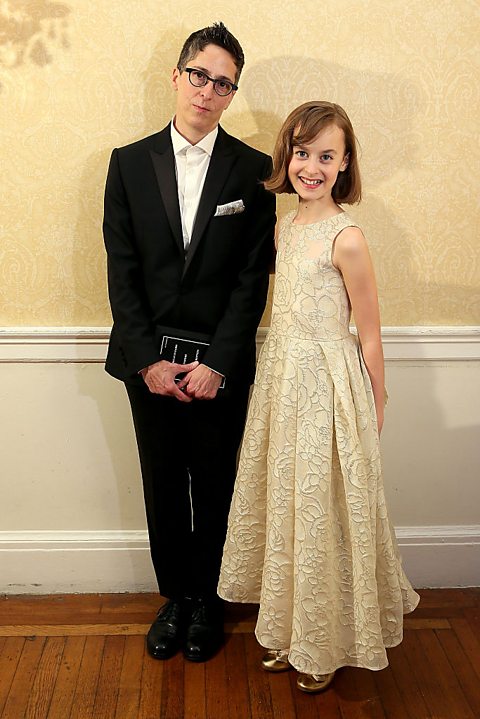
3. A milestone for lesbian representation
It wasn’t until 2015 that Broadway got its first lesbian lead character, in the musical Fun ±«Óătv. Adapted from writer/cartoonist Alison Bechdel’s illustrated memoir, it explores her emotions in the wake of her father’s death (a closeted gay man) as well as her own growing understanding of her sexuality as an adolescent and eventual coming out.
The musical has a non-linear structure with three different actresses portraying Alison as a child, college student and middle-aged woman. In an interview with Playbill, Alison spoke about the character's growing realisation of her attraction towards women: “The moment with Small Alison singing about the butch delivery woman feels huge. To have a child sing about desire and identification; it's brilliant.”
You might recognise Alison’s name from the famous Bechdel Test, which measures whether or not two female characters in a show have a conversation that isn’t about a man. The test, invented by her friend Liz Wallace, was named after Alison because it first appeared in a comic strip she wrote in 1985.
Fun ±«Óătv won the Tony Award for Best Musical in 2014, and created history when Jeanine Tesori and Lisa Kron became the first all-female writing team to win the Tony Award for Best Original Score.

4. Hitting the mainstream
In the 21st Century, LGBT+ plays and musicals have become increasingly popular and well-known. The musical The Prom was able to attract big-name actors such as Meryl Streep, Nicole Kidman and James Corden when it was adapted to film by Netflix in 2020.
James Corden had previously starred in the film adaption of Alan Bennett’s award-winning play The History Boys, which features several male students coming of age and figuring out their attraction.
Other LGBT+ plays and musicals to have hit the mainstream include Everybody’s Talking About Jamie, Kinky Boots and Priscilla, Queen of the Desert.
This article was published in February 2023 and updated in May 2023.
LGBTQ+ coded languages
Explore the world of Polari and the diaries of Anne Lister (Gentleman Jack).
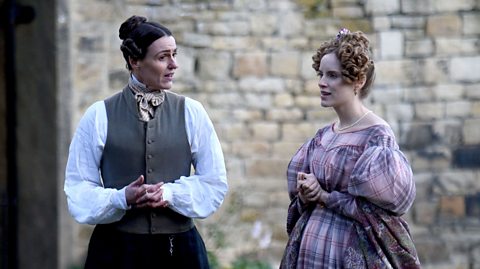
Pride Month: Six symbols of pride
We look at some modern and historic symbols of alliance, protest and pride.
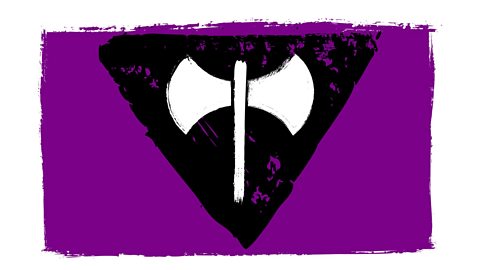
Three times the show couldn’t go on
From Lincoln's assassination, to riots in London, theatre history is full of drama.
